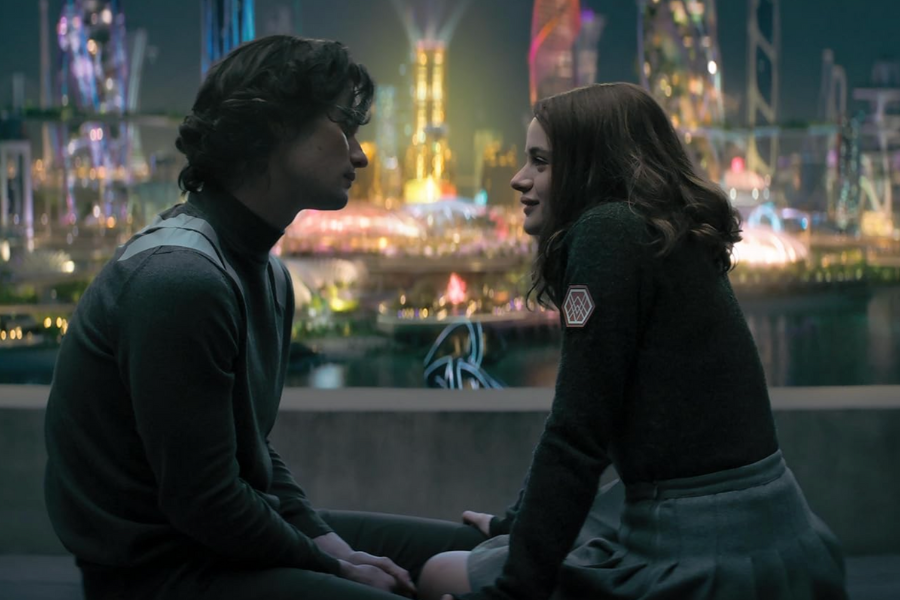Who in the world wanted an adaptation of “Uglies?” Director Joseph McGinty Nichol’s parade of cliches masquerading as a feature film might make sense in the landscape of, say, the early 2010s — one where every other young adult novel was being adapted in hopes of being the next “The Hunger Games.” But in what is approaching the mid-2020s, something this haphazard doesn’t even seem to be grasping at the zeitgeist. This leaves two potential explanations for the “Uglies” adaptation of Scott Westerfeld’s 2005 novel — either this movie is a deeply out-of-touch and misguided cash grab by Netflix, or worse, it’s a genuine work of passion.
“Uglies” carries the torch in a long legacy of speculative fiction that dares to cast beautiful white teenagers as the primary victims of systemic prejudice. In what seems to be some protracted indictment on the cosmetic surgery industry, the dystopia of “Uglies” centers around the forced beautification of teenagers on their 16th birthday. Society is split into two groups: Uglies are people under the age of 16, who live their lives segregated from the rest of the population. They go to school to learn about how much better life will be when they become Pretties — physically attractive people who spend all day every day living out hedonistic pleasure fantasies in a wantless society.
The film follows Tally (Joey King) — nicknamed “Squint,” because Uglies give each other nicknames based on their apparent physical abnormalities — as she is alerted by her new friend Shay (Brianne Tju) that there is an outside world where surgeries aren’t forced. Tally is then given orders by the Pretties’ government that she must find the secret society rebelling against them or else she will be denied her beautification surgery.
There’s a scene near the beginning of “Uglies” where an auditorium of students sit down for an assembly. A holographic Laverne Cox explains how the operation is the great equalizer that will bridge the gap between all of them — prejudice will end, all will be beautiful. This scene is tiresome given that this has already been explained to viewers at least twice by this point in the film. However, at the end of the scene, Cox’s character calls for everyone whose operation is tomorrow to step up on stage. This detail implies that they’re having this assembly every single day.
You would be hard-pressed to find a film in recent years with less graceful exposition than “Uglies.” The viewer is not drip-fed information about the environment through thoughtfully placed explanations and clever production design, but rather drowned in it, repeatedly but rhythmically forced to listen to the same couple of soundbites: the world of the past has ended, there is a surgery which will end social stratification and everything’s better when you’re beautiful. If this information were spread out or just mentioned once, it may have been tolerable, but the majority of the runtime is dedicated to characters sitting down and telling each other things they should already know.
Even if it’s fitting of the title, the writing doesn’t get any favors from the presentation. Actors loaf around lifeless concrete sets on computer-generated backdrops, tacky futuristic party venues and poorly scouted wilderness venues. Most dialogue consists of tensionless cuts between close-ups, maybe with one wide shot thrown in for spice, and the framing does nothing to heighten the occasional dull action scene.
For a film that’s been in development hell for so long that it could vote in this year’s presidential election, “Uglies” hasn’t grasped onto any mature thematic elements outside of a surface-level critique of beauty culture. The film doesn’t sit down and grapple with what being a Pretty implies, apart from the obvious discrediting of bodily autonomy. Even then, it’s oddly sidelined to a limp message discouraging plastic surgery. Is there any introspection on the relationship between class and beauty standards? No, from the looks of it, everyone lives in a classless society. The relationship between race and beauty standards? No, the film makes no implication of this fact. Gender expression? Queerness? No, you would be at a loss to find a more violently heterosexual future than “Uglies.”
What you’re left with is a film that assumes a beautiful person is going to be a specific height, weight and skeletal structure, with perfect skin and strictly heteronormative social expression. The film does not question this, only society’s necessity and methods of attaining that status. This is not only an irresponsible thing to leave unaddressed in a film about beauty, but it’s lazy, just like every other aspect of the film.
Contact Max Vetter at [email protected].
























































































































































